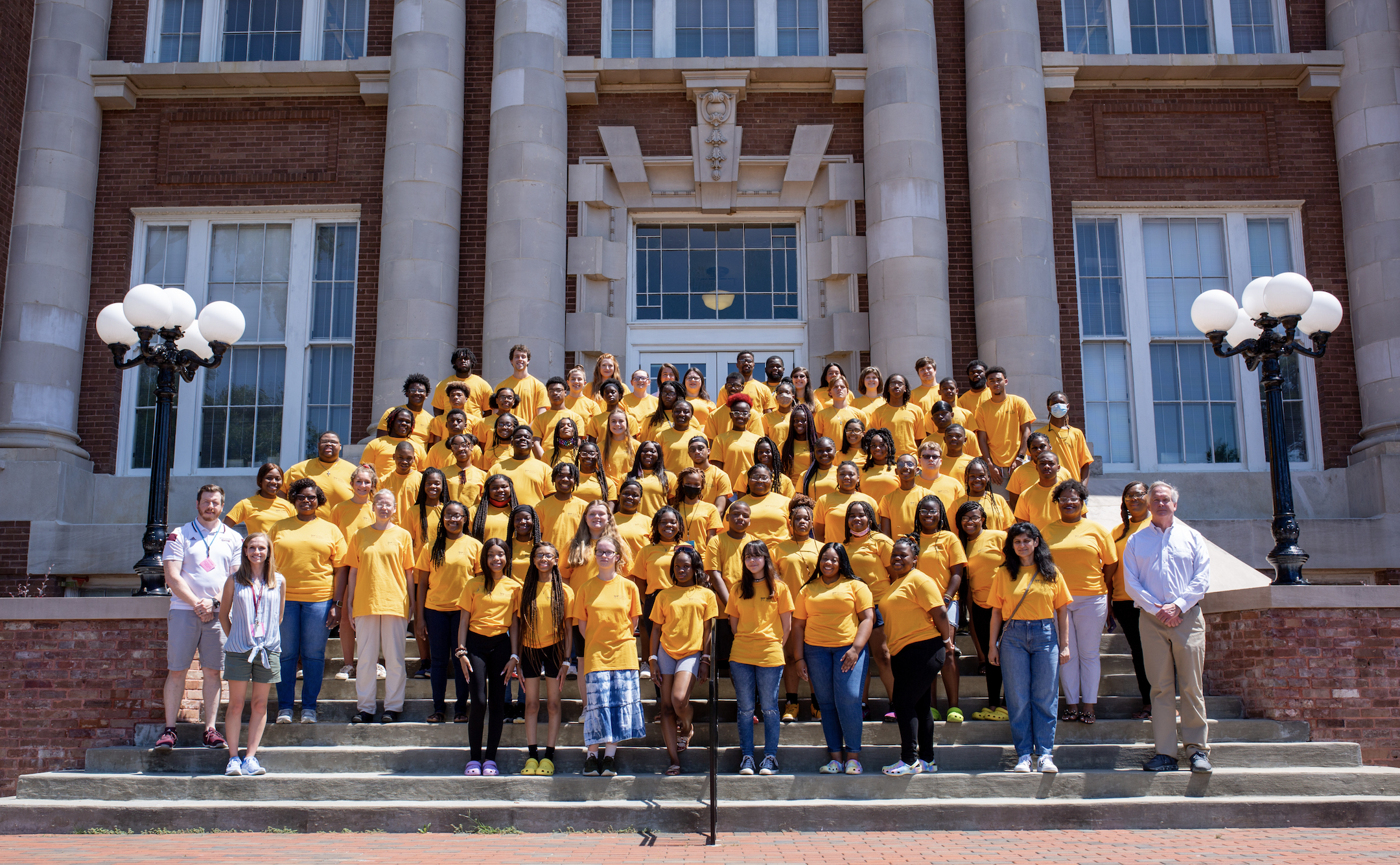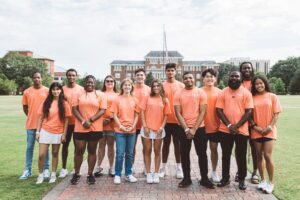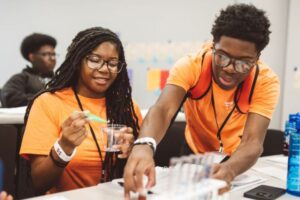
Global Teaching Project Further Expands Unique Reach Serving Promising Students in Rural, High-Poverty Areas
In the 2021-2022 school year, the Global Teaching Project has dramatically expanded its already unique reach into rural, high-poverty communities, providing educational opportunities that otherwise would be unavailable.
Since its inception in 2017, the Global Teaching Project’s Advanced STEM Access Program has proven uniquely successful in providing promising high school students from rural, high-poverty communities access to rigorous courses they need to achieve their full potential, but which their schools otherwise could not offer due to funding and staffing constraints.
In 2021-2022, the Advanced STEM Access Program has doubled the number of schools served and added to its course subjects, dramatically increasing critical AP offerings throughout Mississippi. Those offerings are not just essential, they are unique—schools working with the Global Teaching Project are the only schools that offer key AP STEM courses in the most impoverished counties, not just in Mississippi, but in the nation, according to the most recent U.S. Census Bureau and College Board data.
BackgroundAdvanced Placement (AP)® courses prepare students for college rigor, enhance admission prospects, and can reduce tuition costs by enabling students to earn college credit prior to enrollment. However, university and government studies have found that, while 95% of suburban school districts offer APs, most remote rural districts, and most high poverty schools with substantial Black or Hispanic majorities, do not.
That disparate access to AP courses has highly adverse consequences. Whenever potentially high-achieving students are denied the means to excel academically, those students must limit, or even abandon, their ambitions, with calamitous effects upon both their lives and their communities, whose vitality is linked to the success of their most gifted young people.
The Equity and Excellence Commission, an advisory committee chartered by Congress, concluded in its 2013 report to the U.S. Secretary of Education that “inequities are perpetuated [through] coursework that is low in academic rigor” and the lack of AP courses for underserved rural, low-income, and minority students “aggravate the achievement gaps” and “impair our ability as a nation to raise student achievement.”
The Global Teaching Project implements the Advanced STEM Access Program, now in its fifth year, in conjunction with a consortium of rural Mississippi school districts. The Program currently offers three Advanced Placement courses—AP Physics 1, AP Computer Science Principles, and AP Biology—to over 400 students at 28 high schools, and the Program continues to work to add schools, courses, and students. The most recent U.S. Census Bureau and College Board data relating to schools in the Advanced STEM Access Program and the communities those schools serve illuminate the Global Teaching Project’s unique reach.
Key Findings
- The Global Teaching Project’s Advanced STEM Access Program has more than doubled the number of Mississippi public schools offering AP Physics 1, and increased by 57 percent the number of schools offering AP Computer Science Principles (CSP), relative to the 2020-2021 baseline. Yet those numbers understate the Program’s impact in the state’s most impoverished rural areas, where those courses are only available through the Global Teaching Project.
- The Global Teaching Project is committed to serving communities with the greatest need. The 28 schools served by the Advanced STEM Access Program are concentrated in some of the most impoverished communities in the nation. For example, the Program serves the counties with the nation’s three highest school age (5- 17) poverty rates among the 1,375 U.S. counties with at least 5,000 school age residents. The Program also serves a fourth county with the nation’s lowest median household income among counties with over 5,000 total residents, as well as a school district in a fifth county that has the nation’s highest school age poverty rate among 11,500 U.S. school districts that serve more than 200 school age residents.
- The Global Teaching Project has a unique impact in Mississippi. Schools working with the Global Teaching Project are the only schools serving the 30 Mississippi counties (among 82 total) with the state’s lowest median incomes that offer AP Physics, and the only schools serving the 25 school districts with the state’s highest school age poverty rates that offer AP Computer Science.
- The Program also stands out nationally. In 2020-2021, the College Board authorized nearly 6,000 U.S. schools to offer AP Physics 1, over 5,000 to offer AP Computer Science Principles, and over 9,000 to offer AP Biology. Yet in the 25 school districts with the nation’s highest school age poverty rates, the Program’s schools are the only schools in any state to offer any of those courses.
- In the 41 Mississippi school districts that are characterized as Rural, Low-Income School Districts by the U.S. Department of Education, and have Black student enrollment of at least 70 percent, the only schools that offer AP Physics 1, and all but one school that offer AP CSP, do so through the Advanced STEM Access Program.
We are heartened by the progress we have made to date, and grateful for the efforts of the students, teachers, and administrators who have made that possible.
Nonetheless, we remain mindful of the tremendous work ahead to mitigate the disparate access to advanced classes that impedes the progress of promising students from rural, high-poverty areas. We are fully committed to taking on that challenge, and working with our students, educators, and stakeholders to advance educational opportunity.
For further information, please contact Matt Dolan, CEO of the Global Teaching Project, at matt.dolan@globalteachingproject.com.



